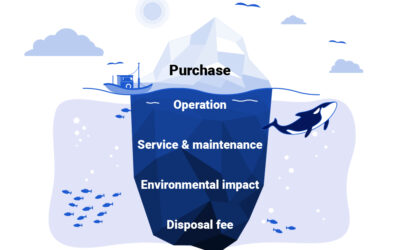The European Commission has issued a warning to 18 Member States about the risk of not meeting their 2025 recycling and waste management targets.
Several countries may not meet their recycling targets for municipal and packaging waste, raising concerns about the effectiveness of waste management policies adopted so far, according to an assessment by the European Environment Agency.
States at risk
Countries that could miss their municipal waste recycling target include Estonia, Finland, France, Ireland, Latvia, Portugal, Spain and Sweden.
Others, such as Bulgaria, Croatia, Cyprus, Greece, Hungary, Lithuania, Malta, Poland, Romania and Slovakia, risk failing to meet not only their municipal waste targets, but also their packaging waste targets.
Furthermore, several states continue to rely heavily on landfills for waste disposal, raising doubts about achieving the 2035 target of reducing landfilling to below 10%.

Source: European Environment Agency
Recycling targets
The targets set by the Waste Framework Directive and the Packaging and Packaging Waste Directive are ambitious.
By 2025, Member States must achieve:
- 55% recycling and preparation for reuse of municipal waste
- 65% for total recycling of packaging waste
- 75% for paper and cardboard
- 70% for glass and ferrous metals
- 50% for aluminum and plastic
- 25% for wood
The main challenges
One of the main obstacles is the management of organic waste, which remains a critical issue for several Member States.
Although the separate collection of organic waste is mandatory from 2024, the European Commission has identified this sector as a major obstacle to improving overall recycling performance.
Monitoring and recommendations
To prevent targets from being missed, an early warning system has been in place since 2018, allowing the Commission to monitor Member States’ progress. This system allows gaps to be identified and timely action taken, with the aim of preventing countries from being unprepared for the 2025 deadline.
In this context, the Commission has formulated specific recommendations for Member States at risk. Suggested actions include reducing non-recyclable waste, increasing reuse, strengthening separate collection and developing infrastructure for waste treatment and recycling. Further proposals concern improving governance and using economic instruments to incentivise virtuous behaviour.
Virtuous states
Despite the general difficulties, there are also countries that are demonstrating good performance. Nine countries, including
- Austria
- Belgium
- Czechia
- Denmark
- Germany
- Italy
- Luxembourg
- Netherlands
- Slovenia
are on track to achieve their 2025 targets.
However, only four of these countries are likely to meet all the specific targets for the various packaging materials.
Italy: a good result, but with reservations
Italy is among the countries that are likely to meet the overall recycling targets, both for municipal waste and packaging waste. However, one of the critical points remains plastic recycling, which is a common challenge for many EU states.
Although Italy already exceeds its targets for materials such as paper, glass and metal, recycling of plastic packaging remains far from the 50% target.
Municipal waste: a growing challenge
In 2020, European citizens generated an average of 521 kg of municipal waste per capita. Of this, only 49% was prepared for reuse or recycled, while around 23% ended up in landfill. This situation comes in a context of a gradual increase in the amount of waste generated in recent years. European directives impose ambitious targets on Member States, including 55% recycling of municipal waste by 2025, with more distant targets such as 60% by 2030 and 65% by 2035. However, 18 Member States are currently at risk of not reaching the 2025 target.
Among the major issues identified is the management of organic waste, which constitutes approximately 34% of municipal waste. Proper management of this flow, through separate collection and effective treatment, could significantly contribute to climate goals and reduce the use of extracted mineral fertilizers.
Packaging Waste: Production Growth and Recycling Challenges
As for packaging waste, around 79.6 million tonnes were generated in the EU in 2020. Although the recycling rate increased from 2005 to 2016, reaching 67.6%, a slight decline was observed in the following period, falling to 64% in 2020. This situation is exacerbated by the increase in the amount of packaging generated, which grew by 15% between 2013 and 2020.
The Packaging Directive imposes recycling targets for specific materials such as paper, glass, aluminium and plastic. However, many Member States, including Italy, struggle to meet the 50% recycling target for plastic, which is considered the most difficult material to recycle.
Conclusion
Waste management and recycling are a complex and crucial challenge for Europe’s sustainable future. While some Member States are showing significant progress, many others are at risk of missing the deadlines. The European Commission will continue to monitor the situation and provide recommendations to ensure that all countries are aligned with the long-term objectives.




